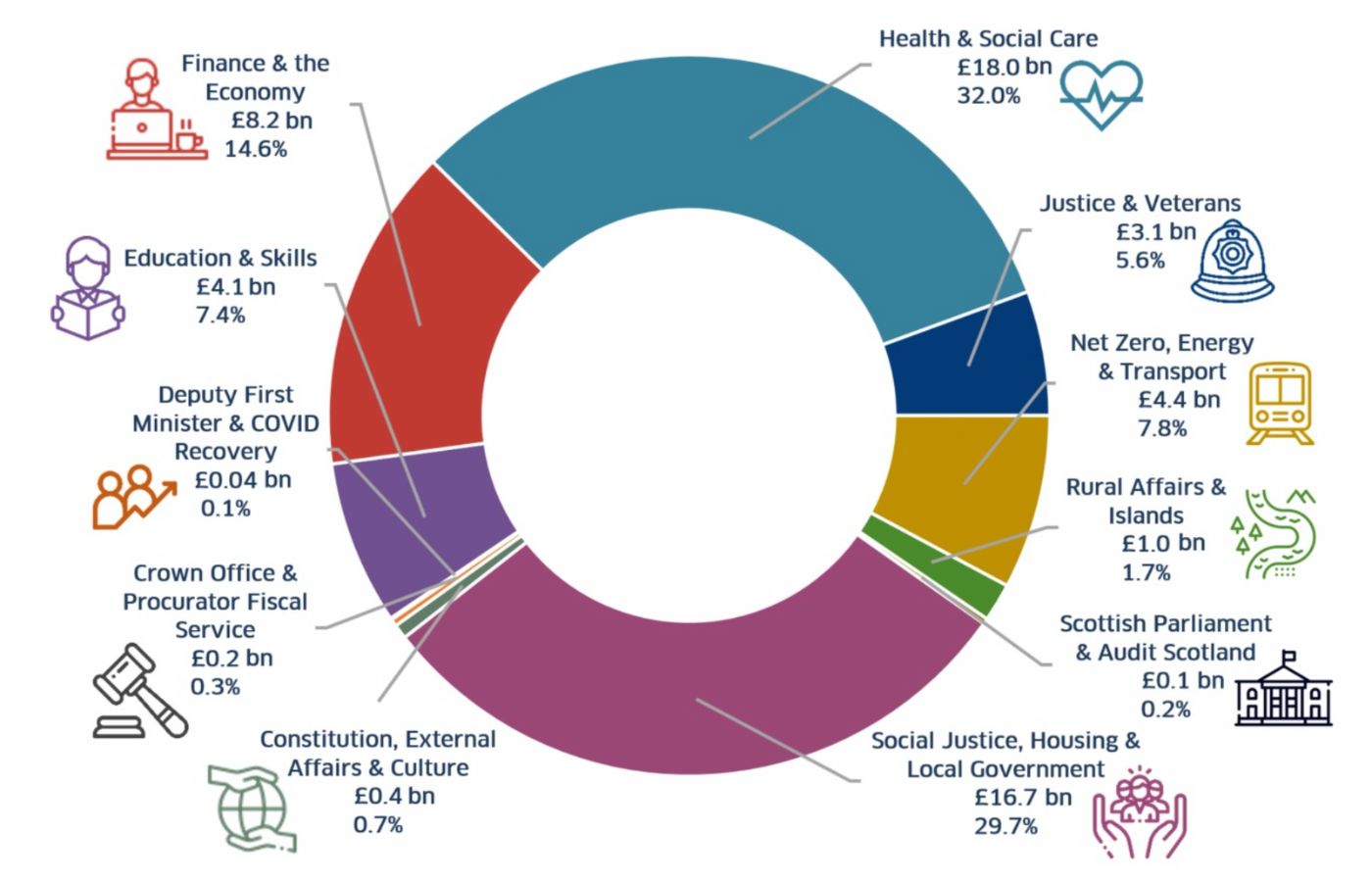Scotland’s public services are not affordable and require reform, the country’s finance watchdog has found.
Audit Scotland said while the Scottish Government has been quick to address short-term financial challenges over the last year it must act to battle longer-term pressures.
The Scottish Government’s total expenditure amounted to £49.8bn – an underspend of £509m.
But long-term trends showed spending in its current form is unaffordable, the auditor general said, with “inflationary pressures and public sector pay settlements having a significant impact”.
The Scottish Government has previously been warned that the amount of money it will have to spend on public services will be outstripped by how much services required.
In essence, the rising price of our public services such as our NHS, schools and transport are increasing faster than the total amount of cash the government has to spend.
That means while this year we saw 1% of cash go unspent, this won’t last.
Scotland is set to face a budget shortfall of more than £1bn over the coming years.
 Scottish Government
Scottish GovernmentInflation as well as an ageing population is putting strain on further finances, as is the wage bill for those in the public sector.
Around £15.4bn was spent on health in Scotland last year alone with the Government saying it will raise this to £18bn this year.
Audit Scotland said a plan for the future must balance both long-term and short-term issues and may require further financial investment.
Auditors said “workforce redesign” would be essential to achieving financial stability.
The report also warned the Scottish Government’s core IT systems may no longer be fit for purpose due to under-investment.
It said there has been no progress on creating a devolved public sector account which would list all assets and liabilities north of the border.
Stephen Boyle, auditor general for Scotland, said: “The Scottish Government responded quickly to the impact of inflation and other factors on the public finances.
“But most of the decisions taken were short-term and will not help manage more turbulence over the next few years.
“Public services in their current shape are not affordable.
“Ministers urgently need to develop a clear roadmap that lays out how public services will be reformed to make them financially sustainable.”
Auditors praised the fact the Government has set up a strategic commercial assets division to advise its financial interventions in the private sector.
This comes after costly interventions in companies including Ferguson Marine, Prestwick Airport and BiFab.
The consolidated accounts were given an unqualified audit opinion, meaning they show a “true and fair” view of the situation.
But the watchdog also said the Scottish Government’s approach to public performance reporting also needs to improve.
“Several indicators of wellbeing are still not being reported on, five years after the National Performance Framework was set up,” Audit Scotland said.
Responding to the report, deputy First Minister Shona Robison said: “We are pleased that the Scottish Government’s accounts have been given an unqualified audit opinion for the 18th year running in the face of a profoundly challenging financial situation, caused by the pandemic, war in Ukraine, and high inflation.
“However, we recognise that more needs to be done.
“That’s why we have embarked on an ambitious programme of public service reform as part of our medium-term financial strategy, which sets out how we will do all we can within our powers to ensure public finances are on a sustainable path.”
The Government also said it is redesigning its internal performance reporting to better measure progress against its goals.
The 2022/23 audit of the Scottish Government consolidated accounts report can be found here.
Follow STV News on WhatsApp
Scan the QR code on your mobile device for all the latest news from around the country


 STV News
STV News

























